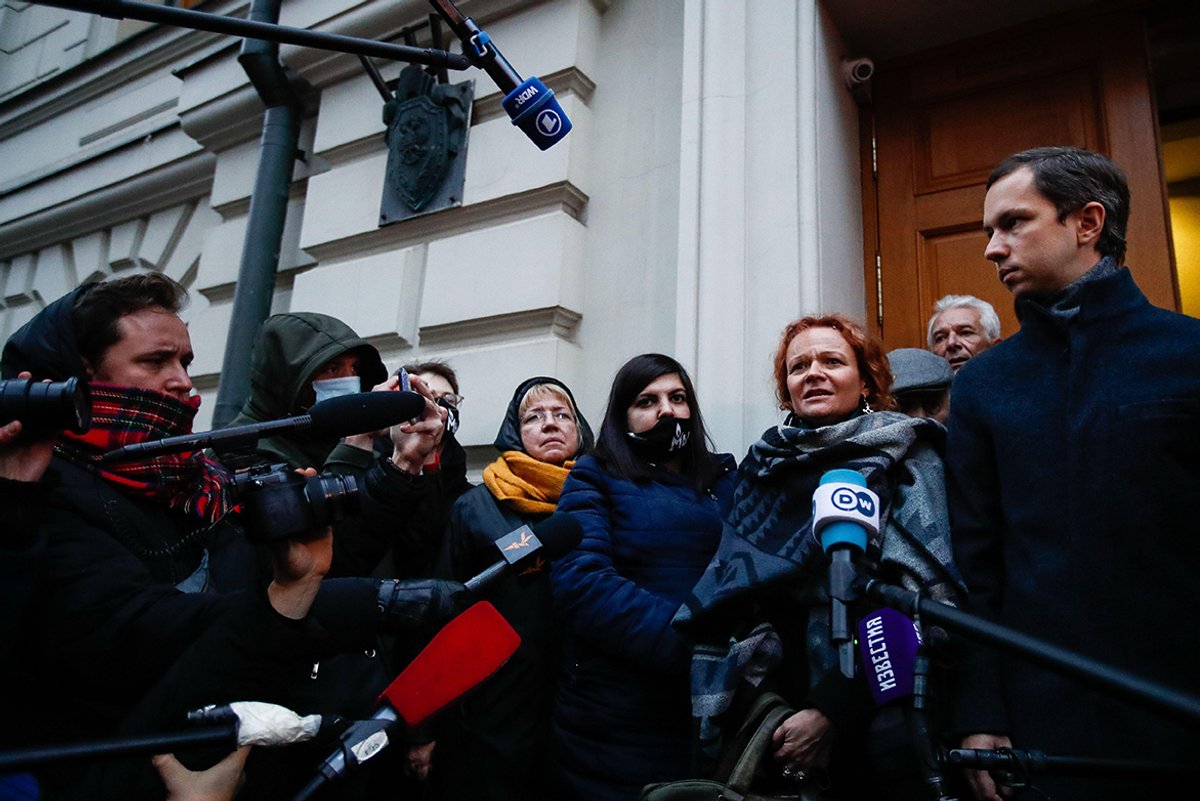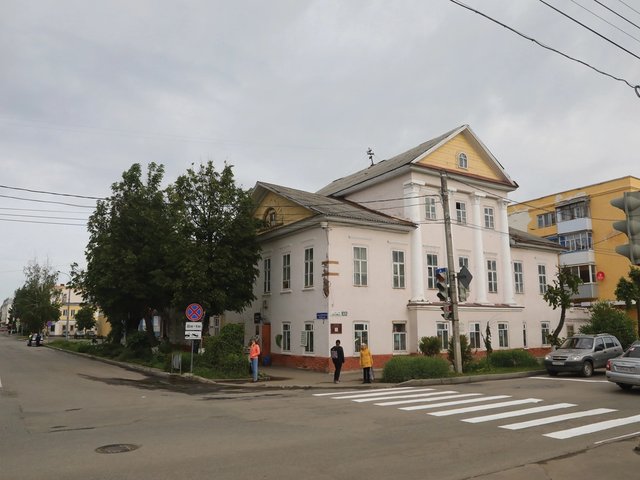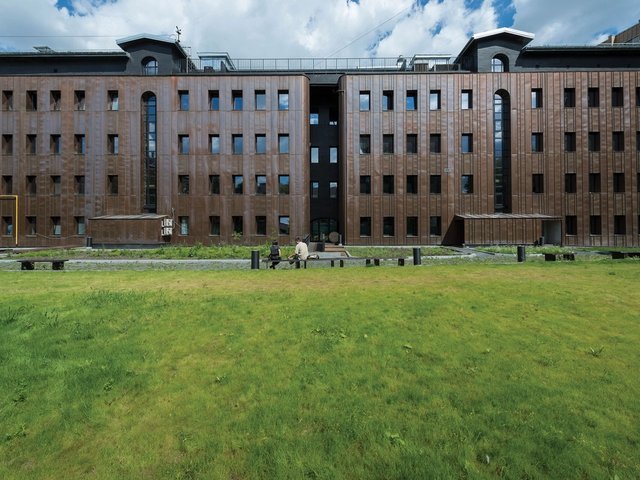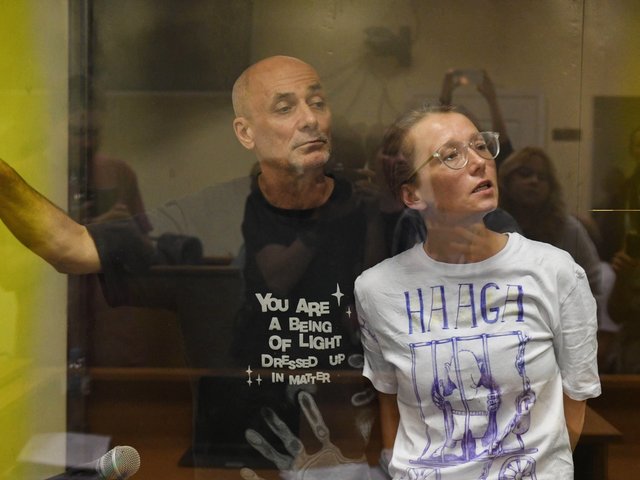Russia's Memorial Human Rights Centre and its sister organisation International Memorial, one of Russia's oldest human rights groups, which is known for its archives and museum, have been ordered to shut by two court rulings in Moscow this week.
The move sends a stark warning to remaining civic activists as the Kremlin continues to clamp down on freedom of expression and foreign influence.
International Memorial and the Memorial Human Rights Centre have been ordered to “liquidate” due to multiple violations of a law that places severe restrictions on “foreign agents,” a label arbitrarily assigned to organisations that fall afoul of the government and receive foreign funding. The human rights centre was branded a foreign agent in 2014, after Russia’s annexation of Crimea, and International Memorial in 2016.
A prosecutor speaking at Tuesday’s hearing at Russia’s Supreme Court accused International Memorial of sullying the Soviet Union’s glory by portraying it as a “terrorist state” and of supporting jailed anti-corruption crusader Aleksei Navalny’s organisation, which was shut down by the courts earlier this year. The Memorial Human Rights Centre was accused at the Moscow City Court of “justifying terrorist activities,” including those of radical Islamic groups and Navalny.
The organisation "is taking advantage of the theme of political repression, creating a false image of the USSR as a terrorist state, and blackening the memory of thee Great Patriotic War,” said prosecutor Aleksei Zhafarov, Memorial posted on Twitter from the courthouse.
The European Court of Human Rights has called on Russia to suspend the decision.
Memorial grew from a groundswell of grassroots activity in the late 1980s as Soviet citizens began to gather archival evidence of the crimes committed under dictator Joseph Stalin’s Great Terror, many seeking information about family members who had been imprisoned in the Gulag and executed. Dissident Nobel Prize-winning physicist Andrei Sakharov was among the founders. It has dozens of branches across Russia and a database of victims of political repression counts over three million names, including numerous artists and cultural figures.
In 2016, as access to state archives became increasingly restricted, Memorial posted a database of names, now listing nearly 42,000, of security police officers who served from 1935-1939, including the height of the Great Terror.
In 2017, President Vladimir Putin, a former lieutenant-colonel in the KGB, inaugurated a monument called Wall of Sorrow by the sculptor Georgy Frangulyan in a ceremony attended by leaders of Memorial, and said that “political repression has become a tragedy for all our people.”
But earlier this month at the annual meeting of his Presidential Commission for Civil Society and Human Rights he faulted the organisation for shortcomings such as including two men who had killed Jewish people during the Second World War in the database of victims of political repression. Memorial's head Jan Raczinski said it was a mistake caused by the huge volume of names and that they had been removed.
In October, a group of thugs chanting “Down with Fascism!” burst into a presentation at Memorial’s headquarters of director Agnieszka Holland’s film Mr. Jones about a Welsh reporter in Stalin’s Russia who persists in uncovering the truth about the Holodomor famine in Ukraine. Police locked Memorial staff and the audience inside.
As Memorial’s prospects grew increasingly dim this autumn, the state-sponsored Gulag History Museum, which uses Memorial’s database, initially posted a statement of support on Facebook, but it was quickly removed. In June, the Gulag museum was named winner of the 2021 Council of Europe Museum Prize.
International Memorial’s small but powerful museum at its Moscow headquarters is currently showing an exhibition of objects from the daily life of women in the Gulag, including painstakingly created embroidery and dolls that they crafted in impossible conditions to send to their children.
Ildar Galeev, an influential Moscow gallery owner, called on the museum community to turn its attention from blockbuster exhibitions of Russian and Soviet art at state museums to Memorial.
“Our museums are agents of state orders to create the illusion of well-being, agents of the state, which is doing everything possible to distract us from the building of a guillotine for the disobedient,” he wrote in a November Facebook post, while Memorial “gathers evidence of an inhuman struggle for survival.”
The Pet Shop Boys tweeted their support on 29 December.
All friends of Russia will be disturbed by this decision. Neil xhttps://t.co/pGGzhACxPi #PetText pic.twitter.com/K7uFhfRbdz
— Pet Shop Boys (@petshopboys) December 29, 2021





